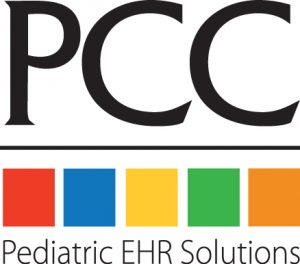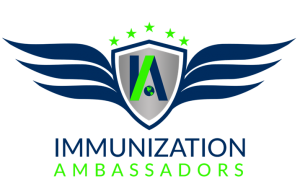Even though vaccinations are one of the greatest public health advancements in human history, and have dramatically reduced the incidence of numerous preventable diseases, they remain one of the most contentious topics facing pediatricians and parents today. This challenge is exacerbated by the complexity of tracking which immunizations are required for each child. ”Immunization logic” is an important feature of the Physician’s Computer Company (PCC) EHR platform and is a vital tool for busy pediatricians.
Would you like to know more about the STC immunization feature available on the PCC EHR platform? Click here and we will send you more information.
In spite of this debate about vaccines, the Centers for Disease Control and Prevention (CDC) and the American Academy of Pediatrics (AAP) recommend that healthy children get vaccinated against 14 diseases by age two. They also suggest an annual inoculation against the flu, as outlined in this recent parent – focused article.
The article adds, “Despite doctors' reassurances and mounting evidence that underscores the safety and value of vaccination, many educated, dedicated parents are still wary of vaccines -- or passionately opposed to them. Although the national immunization rate has remained stable over the past decade (76 percent), that's still short of the government's goal of 80 percent.
“In some pockets of the country, a rising number of parents are delaying shots for their kids or skipping certain ones altogether, citing religious or philosophical exemptions from state laws that require kids to be vaccinated in order to attend school. As a result, there have been recent outbreaks of serious diseases that vaccines had virtually wiped out in the U.S., including measles, mumps, pertussis (whooping cough), and haemophilus influenzae type b (Hib), which was once the most common cause of bacterial meningitis in kids under two.”
An Expert in Public Health Looks at the Vaccination Controversy
Devon Sims is the Director of Public Health Services with Scientific Technologies Corporation (STC) and she has a wealth of information about the importance of comprehensive childhood immunization programs for the overall public health. She also understands the basis for the vaccination controversy.
“Anything that involves children results in passionate conversations,” Devon noted. “The health and well-being of our children are important to everyone. Vaccines have evolved and improved over time and are, in fact, critical to the public health of our country.”
“Sadly, there is a proliferation of misinformation about these vaccines. While there are many forces at work, it is brought about, in part, by the ‘vocal few’ celebrities who present opinions which are not based on science. The classic example is the linking of vaccines to autism. That connection has been proven as false and yet the myth continues to linger.”
“Wide-spread vaccinations have dramatically increased the quality of life by decreasing illnesses and saving lives. This points to the need for the continuation of studies, publishing accurate data on vaccinations and doing what’s right for our children.”
A Leader in Health Technology Innovations
Scientific Technologies Corporation (STC) is a health technology innovations and services company. The company’s mission is to advance population health outcomes through information technology and an important aspect of this involves innovative immunization programs.
In addition to its various products, the company provides programs and services such as training and professional services solutions to support immunization programs, disease surveillance and other public health programs.
“Some states have very few staff,” Devon noted, “And we will provide services such as provider training roll-out or interoperability onboarding as they need them. Our immunization forecaster software is also a part of the PCC EHR and is used by pediatricians all over the U.S.”
The Challenges of Managing the Logic of Immunizations
A public health professional who might be responsible for millions of kids or an individual pediatrician managing a practice can each attest that managing all of the “moving parts” of immunizations can be financially and organizationally challenging! The STC immunization products and the PCC EHR platform are the most robust in the nation and they are built on intuitive logic to make this management more efficient. Immunization logic is the software which allows a pediatrician or nurse to efficiently research the clinical history of the patient and accurately determine which immunizations are due.
“We get excellent guidelines from CDC,” Devon noted. “That is the backbone of the logic and many EHRs do provide some level of immunization tracking, however there are other nuances and additional functionality that EHRs could put into place to make it easier for providers.
“Managing the logic for the ‘one off’ scenarios or unique medical cases is our biggest challenge,” she said. “In most cases the logic is written to be applicable across the entire range of possibilities. However, there are unique cases that require a specific approach.
“For example, development of logic is challenging when immunizations are administered off-label. Providers and nurses do a great job in delivering healthcare, but in some instances a brand is administered to a patient and that formulation had not been specified for that age group. Understanding these medical nuances are important for public health but extremely challenging to forecast.”
Immunizations: All EHR Vendors are not Alike

Pediatricians who choose the PCC EHR platform realize the benefits of this STC immunization logic. However, not every EHR puts this type of emphasis on immunization. Devon explains how PCC’s platform differs.
“A robust EHR should give the providers the ability to forecast risk populations and target immunizations to that group. A pediatric focused EHR needs a robust recall and reminder system that addresses the unique clinical needs of children – particularly the preventive care requirements outlined by the AAP’s Bright Futures standards. Immunization logic and guidance should be at the front and center of each patient record so opportunities to immunize are not missed. Each practice’s protocols should include the expected immunizations for each well visit age. PCC excels at this functionality.
More Efficient Immunizations
The PCC EHR platform is designed for pediatricians exclusively and, as such, it enables more efficient management of patient immunizations. Does this translate into more immunizations and a safer population?
“Yes, I think it does,” Devon said. “As I have noted, our platform has a forecasting component tied to all 50 state registries. So, when a patient is in the pediatrician’s office, the PCC EHR platform will allow the doctor to know exactly what type of vaccine should be given at that particular time. Timely immunizations are really critical for children.”
“With the new Administration in Washington and new leaders at the Health and Human Services department, it is very important for us to reiterate the critical nature of timely immunizations for both children and adults,” she said. “Members of the immunization community have formed many local coalitions to ensure that we have input on funding for these immunization measures. “
Chip Hart, the Director of Pediatric Solutions at PCC notes the importance of having a platform with this immunization logic. “Many kids fall through the cracks when it comes to getting their vaccinations. This may be due to the family moving or some other factors but it results in an incomplete immunization record. When we ‘turn on’ the immunization logic of our platform, we will often find two or three children each week who need additional immunizations. Over the course of a year, among all of our clients, this represents thousands of kids who are avoiding preventable diseases.
“Our platform also helps pediatricians deal with the challenges of adolescent immunizations. Research from the AAP has shown that adolescent immunization rates are lower than younger children. It is critical that every healthcare visit – especially with adolescent patients – is an opportunity to review and update immunization records,” he said.

Finally, Devon pointed to a proactive program that the company has begun. “STC has formed a group called ‘Immunization Ambassadors,’ which is a group of community leaders, citizens, consumers and business leaders who are passionate about immunization and share their experience about why this subject is so vital to public health. This group will fight for the resources which are needed for vaccinations so we don’t have another outbreak of measles as has happened recently in Disneyland. It seems that some Americans have forgotten about the damage these preventable diseases did to our children and families. We must be vigilant to keep these diseases under control and eventually eradicated. This can only be done through immunization programs,” she concluded.




